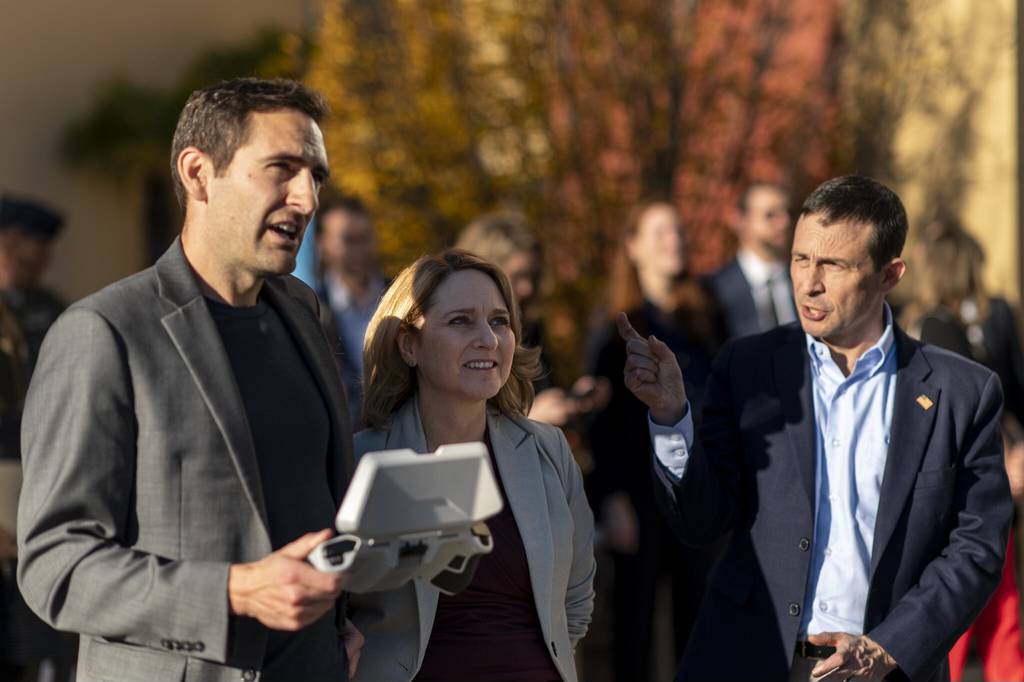
As the Defense Innovation Unit takes on a more central role in the Pentagon’s innovation ecosystem, Congress is proposing a nearly $800 million boost to the organization’s funding in fiscal 2024.
House and Senate appropriators released a compromise version of the fiscal 2024 defense spending bill March 21 that would grow DIU’s funding to $983 million — up from the $191 million enacted the prior year across multiple accounts that support the unit.
“The Department of Defense continues to identify innovation and expediting capability development as top priorities,” lawmakers said in a report accompanying the bill. “This agreement supports these priorities and takes steps to better enable innovation efforts to expeditiously translate into fielded capabilities.”
The House is expected to vote on the bill on Friday.
DIU was created in 2015 to draw more commercial technology into the Pentagon. Its role has grown from focusing on partnerships and proving the value that Silicon Valley startups can bring to national security to now leading efforts within the Defense Department to push that technology to the field in larger quantities.
The organization has struggled since its inception to get buy-in from DOD leaders as well as the funding to match. That started to shift last year when Defense Secretary Lloyd Austin elevated DIU to report directly to his office and named former Apple executive Doug Beck to lead the unit.
Beck now sits on the Deputy’s Innovation Steering Group, which oversees DOD efforts to rapidly field technology to address high-need operational problems. He also chairs a separate Defense Innovation Working Group and DIU is playing a key role in Replicator an effort to field thousands of drones in two years and develop a process for quickly delivering capabilities to military users.
Congress has recognized the organization’s growing importance. The House Appropriations Defense Subcommittee, led by Chairman Ken Calvert, R-Calif., proposed the creation of a “hedge portfolio” comprised of innovative, commercially available systems like satellites, drones and agile communication nodes. His subcommittee approved $1 billion for the effort and gave management authority to DIU.
The compromise bill replaces that language and slightly reduces the funding it called for. It also eliminates a proposal that would have required each military service to designate a Non-Traditional Innovation Fielding Enterprise lead who would be responsible for working with commercial industry partners and shepherding projects within the service.
The final bill does require each service secretary to identify an organization with “proven competence in partnering with commercial entities” and develop plans and processes for how that office will leverage DOD-wide innovation initiatives.
It also calls on DIU to provide details on the additional staffing, infrastructure and authorities it will need to execute its new role. Lawmakers also want information about the organization’s fiscal 2024 programs and an assessment from the organization of the military services’ participation in the Defense Innovation Working Group.
To this last point, the bill emphasizes the importance of collaboration among the Office of the Secretary of Defense and the services as well as the delegation of decision-making authority to the organizations that are best equipped to make sure capability can get to users in the field.
“The pursuit of innovation should enhance, not undermine, sound financial, acquisition, technical and management best practices essential to delivering capabilities to warfighters on time and on budget,” the bill states. “This requires efficient collaboration between requirements owners, acquisition officials, comptroller organizations and other stakeholders.”
Author: Courtney Albon
Source: DefenseNews



